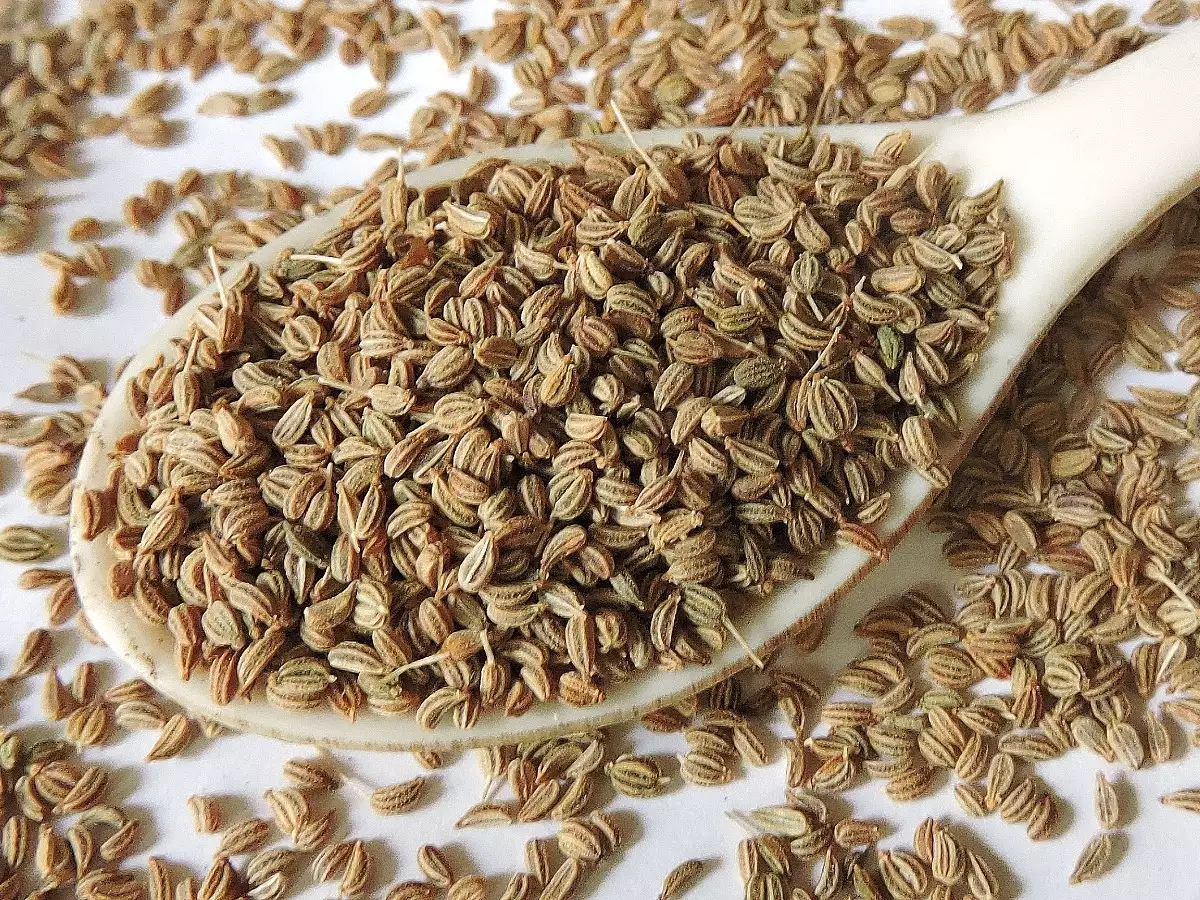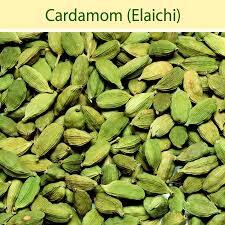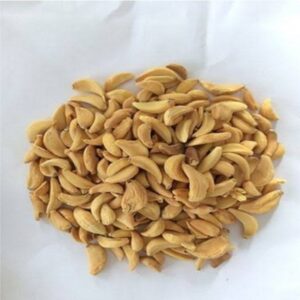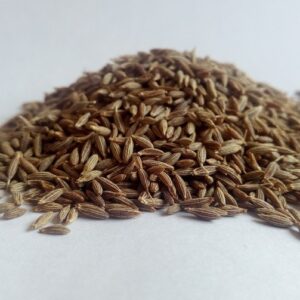Description
Ajwain seeds, also known as carom seeds or bishop’s weed, are the dried seeds of the Ajwain plant (Trachyspermum ammi), which belongs to the Apiaceae family. Here are some key points about ajwain seeds:
- Appearance: Ajwain seeds are small, oval-shaped seeds with a ridged texture and a grayish-green to brown color. They have a strong, pungent aroma and a sharp, bitter taste.
- Flavor and Aroma: Ajwain seeds have a distinctive flavor profile characterized by a strong, aromatic scent and a slightly bitter, peppery taste with hints of thyme and oregano. The aroma of ajwain seeds is reminiscent of thyme and is often described as intense and penetrating.
- Culinary Uses: Ajwain seeds are a popular spice used in Indian, Middle Eastern, and North African cuisines. They are commonly used to flavor savory dishes such as curries, stews, lentil dishes, bread, and savory snacks. Ajwain seeds are also used as a digestive aid and are often chewed after meals to promote digestion and relieve bloating and gas.
- Digestive Aid: Ajwain seeds have long been used in traditional medicine as a digestive aid and remedy for various digestive issues, such as indigestion, flatulence, and stomach cramps. They contain compounds such as thymol and carvacrol, which have anti-inflammatory and antispasmodic properties that help relax the muscles of the digestive tract and promote the secretion of digestive enzymes.
- Health Benefits: In addition to their digestive benefits, ajwain seeds are believed to have various other health benefits. They are rich in antioxidants, vitamins (such as vitamin A, vitamin C, and vitamin E), minerals (such as calcium, iron, and potassium), and essential oils. Ajwain seeds are also thought to have antimicrobial, anti-inflammatory, and analgesic properties.
- Cooking Tips: Ajwain seeds can be used whole or ground, depending on the recipe. To release their flavor and aroma, it’s common to lightly toast whole ajwain seeds in a dry skillet before using them in cooking. Ground ajwain seeds can be added directly to dishes or used as a spice rub for meats and vegetables.
- Storage: Ajwain seeds should be stored in an airtight container in a cool, dry place away from direct sunlight. Properly stored ajwain seeds can retain their flavor and aroma for up to one year.
Specifications
-
Botanical Name
Trachy spermum Ammi / Carum Copticum
-
Common Names
Carom Seeds, Ajowan Seeds, Bishop Seeds, Celery Seeds.
-
Purity
99%
-
Moisture
Max. 10%
-
Cleaning
Machine Clean / Sortex Clean
-
GMO
Non Genetically Modified
-
Origin
India







